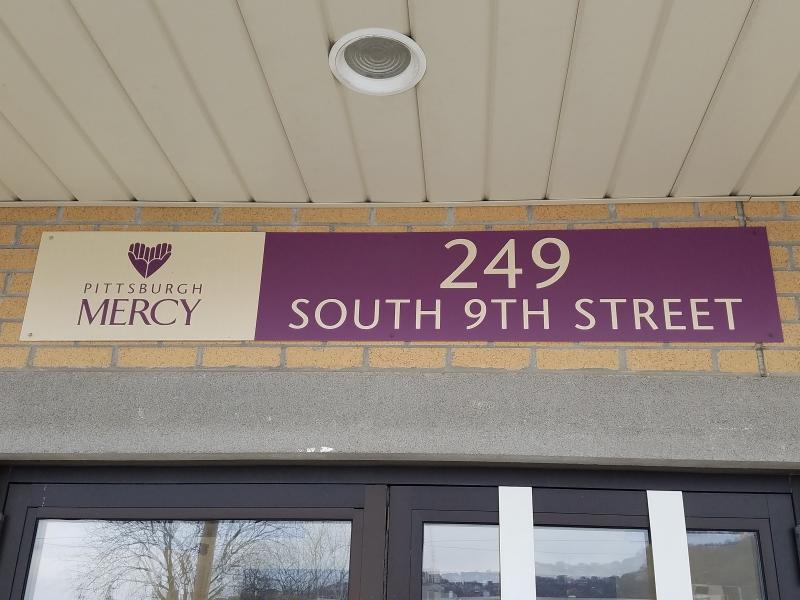Serving with Purpose

Pittsburgh Mercy Family Health Center (PMFHC) is not your ordinary primary care doctor’s office. We’re only one part of a seemingly ubiquitous behavioral health campus that is simply known to many as Pittsburgh Mercy’s South 9th Street campus. There, Pittsburgh Mercy also offers social service navigation, community health resources, care engagement opportunities, peer support, and a mobile medical unit, in which we bring health care services directly to the populations and communities we serve This includes persons with mental health and/or substance use disorders (addiction); intellectual disabilities; persons who are currently or formerly experiencing homelessness; and others who have multiple, complex needs. We serve annually more than 5,302 unique individuals.
As a patient navigator, I serve persons who are underserved, underinsured, and uninsured through various innovative engagement and care management endeavors. As you may have guessed from my position title, I assist patients in navigating their journey through Pittsburgh Mercy and other community resources. This usually involves coordinating patient care with our primary care practitioners, our Hepatitis C clinic, medication-assisted treatment (MAT) program, hospital specialists, and the other essential internal and external support services. This person-centered team approach to managing care empowers the individuals we serve to comfortably integrate their physical and behavioral wellness services — that is, if they choose to engage.
Enter Cooper. Exchanging football banter with friends, popping a cold one wrapped in a brown paper bag, and enjoying a pack of cigarettes in the parking lot — that is a typical day for Cooper (not his real name to protect his privacy). Cooper lives with his friends in a nearby Pittsburgh Mercy residential program for individuals who have multiple, complex needs. Chronically homeless individuals are usually more susceptible to a form of medical complexity known as tri-morbidity — which often manifests in this population as a trio of Hepatitis C, mental illness, and substance use disorder.1 For this reason, Cooper is also regularly seen at PMFHC by our physician assistants, also known as a PA. One day, his PA asked me to assist Cooper in scheduling a colonoscopy at a local hospital. Following the preparation instructions of the gastroenterologist, we worked on making sure he followed a strict, clear-liquid and low-fiber diet, picked up his prescription from the pharmacy the night prior to the scheduled procedure, and determined which bus lines he needed to take to get from his home to the hospital.
Somehow earning his trust to help coordinate his medical care, I felt overzealous entering into the weekend. I had succeeded in reaching him when perhaps other could not— or so I thought.
As I pulled up to the health center Monday morning, the day of Cooper’s colonoscopy, I see the Steelers’ biggest fan in the PMFHC parking lot with a brown paper bag in his hand, jabbering away with his neighbors. He says he overslept by accident. I ask him to come into the health center, so I can assist him in rescheduling the procedure. He reassures me that he knows and will come in the next day to reschedule. I’ve heard some iteration of that statement from Cooper almost every day for the past 11 weeks. It’s been as gut-wrenching to hear in week 11 as it was on day 1.
I’ve learned a lot from Cooper. He’s taught me to embrace the philosophy of harm reduction. Rather than attempting to force sobriety on a person who is very early in their recovery and may fear change, we can suggest they drink three cups of water for every alcoholic drink they consume. If they use tobacco, we can also suggest they reduce consumption by half at first and offer them tobacco cessation aids and peer support. Harm reduction can be a useful tool in helping patients change recurring, detrimental habits and can empower them to choose healthier lifestyle behaviors.
Cooper did eventually reschedule his procedure for another date, but he was unable to show up again. He said he didn’t want to miss watching the Penguins game. Still, the very act of Cooper making an appointment illustrates his willingness to engage.
Over time, I’ve learned that service to others, especially hard-to-reach populations, doesn’t usually favor instant gratification, but rather baby steps in a positive direction. That gives me hope — and purpose.
Sources
1. Adebowale V. There is no excuse for homelessness in Britain in 2018. Bmj. 2018. doi:10.1136/bmj.k902.

This post was written NPHC member Tobin Chemplavil.
Tobin serves at Pittsburgh Mercy Family Health Center as a Patient Navigator.